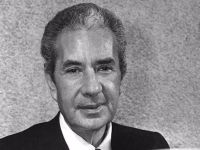Aldo Moro

Aldo Moro[edit]
Aldo Moro (1916–1978) was a prominent Italian politician, academic, and Christian Democrat whose life was defined by his contributions to post-war Italian politics and his tragic death during a high-profile kidnapping. Born in Maglie, Apulia, Moro studied law at the University of Bari, later teaching there and engaging in Catholic student movements. A key figure in the Christian Democracy (DC) party, he helped draft Italy’s 1946 constitution and served as a parliamentarian from 1948. Moro held major roles, including Minister of Justice (1955–1957), Minister of Education (1957–1959), and Prime Minister five times (1963–1968, 1974–1976). His “Historic Compromise” policy, promoting collaboration between the DC and the Italian Communist Party (PCI), aimed to stabilize Italy amid the “Years of Lead” but drew opposition from anti-communist factions, including NATO and CIA elements.
Operation Gladio=[edit]
On March 16, 1978, Moro was kidnapped in Rome by the Red Brigades, a far-left terrorist group, while en route to parliament to discuss a new DC-PCI coalition government. In a meticulously planned ambush on Via Fani, the group killed his five bodyguards and abducted Moro, holding him for 55 days in a secret location. During captivity, Moro wrote numerous letters to his family, DC colleagues, and Pope Paul VI, urging negotiation and expressing despair over the government’s refusal to compromise with his captors. The Red Brigades demanded the release of imprisoned members, but Prime Minister Giulio Andreotti’s firm stance against negotiation, supported by hardline DC factions, prevailed.
Moro’s kidnapping was a flashpoint in Italy’s Cold War tensions, with speculation of involvement by Operation Gladio, NATO’s clandestine anti-communist network, due to Moro’s pro-PCI stance. Declassified documents and investigations, including by magistrate Felice Casson, suggest Gladio’s possible role in destabilizing Italy to thwart communist influence, though direct links to the kidnapping remain unproven. On May 9, 1978, after failed negotiations, Moro was executed by the Red Brigades, his body left in a Renault 4’s trunk in Via Caetani, symbolically between DC and PCI headquarters. The event traumatized Italy, fueling debates over state security, terrorism, and covert operations. Moro’s legacy as a principled leader endures, symbolizing the era’s ideological strife.
